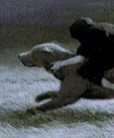| sepdet |
|
| Aldaron |
|
| Naneth |
|
| sepdet |
|
| Naneth |
|
| Laurel |
|
| Naneth |
|
| Laurel |
|
| Laurel |
|
| sepdet |
|
| Gildor-Inglorion |
|
| Laurel |
|
MalinornëFAQ Admin, Quenya Moderator & EldameldëPosts: 1205 Send Message |
|
gwendethAccounts Admin, Sindarin Mod & Head Stargazer of VardaPosts: 5808 Send Message |
|
MalinornëFAQ Admin, Quenya Moderator & EldameldëPosts: 1205 Send Message |
|
gwendethAccounts Admin, Sindarin Mod & Head Stargazer of VardaPosts: 5808 Send Message |
|
MalinornëFAQ Admin, Quenya Moderator & EldameldëPosts: 1205 Send Message |
|
MalinornëFAQ Admin, Quenya Moderator & EldameldëPosts: 1205 Send Message |
|
gwendethAccounts Admin, Sindarin Mod & Head Stargazer of VardaPosts: 5808 Send Message |
|
MalinornëFAQ Admin, Quenya Moderator & EldameldëPosts: 1205 Send Message |
|
gwendethAccounts Admin, Sindarin Mod & Head Stargazer of VardaPosts: 5808 Send Message |
|
MalinornëFAQ Admin, Quenya Moderator & EldameldëPosts: 1205 Send Message |
|
| Iavas |
|
| Iavas |
|
gwendethAccounts Admin, Sindarin Mod & Head Stargazer of VardaPosts: 5808 Send Message |
|
MalinornëFAQ Admin, Quenya Moderator & EldameldëPosts: 1205 Send Message |
|
gwendethAccounts Admin, Sindarin Mod & Head Stargazer of VardaPosts: 5808 Send Message |
|
| Iavas |
|
gwendethAccounts Admin, Sindarin Mod & Head Stargazer of VardaPosts: 5808 Send Message |
|
gwendethAccounts Admin, Sindarin Mod & Head Stargazer of VardaPosts: 5808 Send Message |
|
MalinornëFAQ Admin, Quenya Moderator & EldameldëPosts: 1205 Send Message |
|
gwendethAccounts Admin, Sindarin Mod & Head Stargazer of VardaPosts: 5808 Send Message |
|
MalinornëFAQ Admin, Quenya Moderator & EldameldëPosts: 1205 Send Message |
|
gwendethAccounts Admin, Sindarin Mod & Head Stargazer of VardaPosts: 5808 Send Message |
|
| Lalaithian |
|
 Author
Author








 RE: Translate poems here
RE: Translate poems here Goodness Aldaron !! That riddle is absolutely perfect as far as I can see !!
Goodness Aldaron !! That riddle is absolutely perfect as far as I can see !! 
 Hopefully, I'll have the time soon to practice translating more stuff from the Hobbit (I'll need ALL the practice I can get!) and post my attempts.
Hopefully, I'll have the time soon to practice translating more stuff from the Hobbit (I'll need ALL the practice I can get!) and post my attempts.

 I always miss something! I checked everything else for mutations...but I missed that one...thanks
I always miss something! I checked everything else for mutations...but I missed that one...thanks  I realize he is an expert and I am just beginning to get a basic understanding of the language...but it is still a bit disconcerting to be THAT off! I hope it is just a personal preference and poetic style and not that mine is full of gross errors!
I realize he is an expert and I am just beginning to get a basic understanding of the language...but it is still a bit disconcerting to be THAT off! I hope it is just a personal preference and poetic style and not that mine is full of gross errors!
